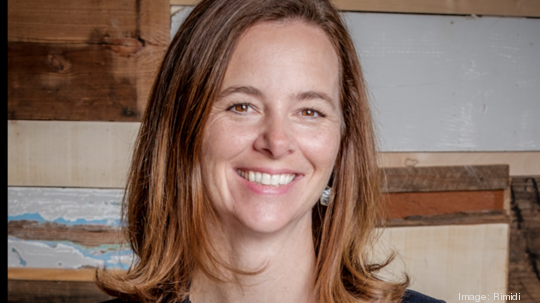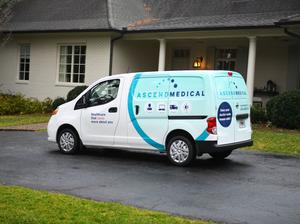
A partnership between an Atlanta startup and Emory Healthcare may help patients better manage their medical treatments.
Rimidi, founded in 2012 by clinicians, produces a cloud-based software to personalize care plans through physician and patient collaboration. The startup is working with Emory Healthcare to provide neurological conditions and orthopedic surgery patients with apps that monitor their treatment progress, both at home and in the clinic.
“Patients and consumers really desire that their doctors support them but also make healthcare more convenient,” Rimidi CEO Dr. Lucienne Ide said. “They want help on the care plan that they talked about in the clinic.”
The startup is in talks with other Emory services to provide similar apps, such as for patients with diabetes.
"The brain health center and orthopedics are two of the more innovative service lines,” said Dr. Scott Boden, Emory’s vice president for business innovation. “They tend to push the edge a bit more and are hyper-focused on patient experience.”
The partnership highlights a growing trend in healthcare to use technology to make treatment more personalized and convenient for patients. The pandemic accelerated that trend, forcing in-person visits to go virtual and shining a spotlight on inefficiencies in legacy healthcare systems.
As a technology and public health hub, Atlanta has seen other tech-driven initiatives to make healthcare more accessible, transparent and collaborative.
InpharmD, a startup backed by Silicon Valley’s Y-Combinator, partnered with five Southeast health systems to make it easier for doctors to access reputable treatment information by summarizing medical studies with artificial intelligence. Startups Ascend Medical and Physician360 are ramping up telemedicine and at-home treatment options.
The Rimidi app brings together patient reports with clinical data and provides patient education throughout the treatment process.
For example, a patient could take their blood pressure on a specific medical device, which will then upload into the Rimidi software so their physician can see it. Or the patient may answer a questionnaire regarding their medication or surgery preparation.
Boden said the healthcare industry typically adopts new technology slowly because of security and privacy concerns, as well as the complicated processes of providing patient care, which cross different departments.
Because of Ide’s background as a physician, she said she built Rimidi to “speak both languages” of technology and healthcare. The software integrates into existing workflows to make it easier on physicians.
Rimidi, a 2020 Inno on Fire winner, also worked with the Centers for Disease Control and Prevention to produce a patient-reported outcomes survey app, which updated with the latest guidelines on the virus.







